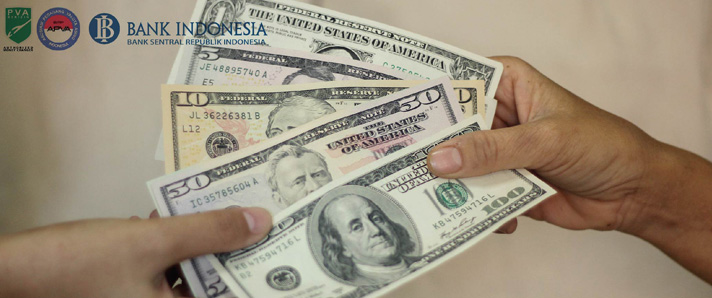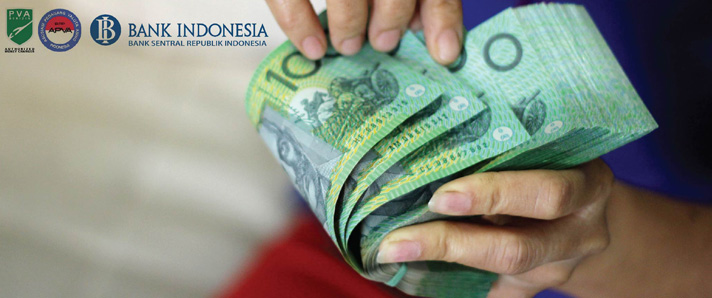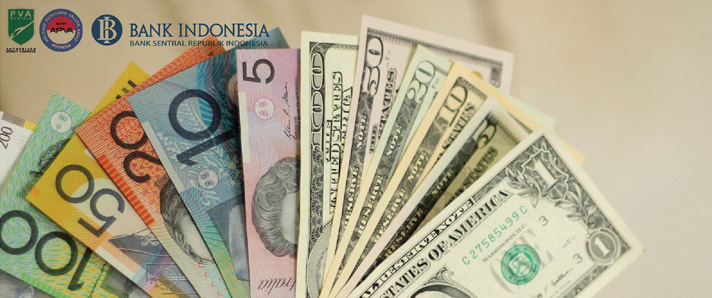Indonesia decision guide: rescuing the rupiah from Fed fallout
Indonesias central bank has more pressing things to worry about than its next interest-rate move.
Policy makers are instead seeking to sandbag the currency against more capital outflows as the US Federal Reserve moves ahead with its tightening plan.
Governor Agus Martowardojo has signaled that Bank Indonesia will keep dipping into foreign reserves to support the rupiah, while all but scotching talk of a rate increase anytime soon.
With the currency tumbling and foreign investors selling the nations stocks and bonds, all 20 economists in a Bloomberg survey predict the seven-day reverse repurchase rate will remain at 4.25 percent on Thursday.
That would be the central banks sixth straight month on hold even as other peers begin tightening. Agus last week said a closing window for easing doesnt mean the central bank will raise rates.
Stability would be the top priority, said David Sumual, chief economist at PT Bank Central Asia in Jakarta. The impact of rupiah volatility on inflation expectations should be Bank Indonesias main concern right now, he said.
The rupiah has fallen almost 3 percent against the dollar since the end of January and touched a two-year low to be the worst performing currency in Asia, as signs of a stronger US economy fueled expectations of more Fed tightening. To help bolster the currency, the central bank ran down its foreign reserves by almost $4 billion in February to US$128 billion.
Agus has said Bank Indonesia was unperturbed by the decline in its reserves, and expected some market volatility before the Feds meeting this week. US policy makers followed through with an interest rate increase Wednesday in Washington and penciled in another two hikes this year.
As Bank Indonesia demonstrated last month, the first line of defense will be the use of foreign reserves to reduce rupiah volatility, said Euben Paracuelles, an economist at Nomura Holdings Inc. in Singapore. They still have relatively comfortable reserve adequacy levels at this point.
Southeast Asias biggest economy is struggling to fire. Growth is stuck around 5 percent and potentially slowed in the first quarter of the year, while lending activity remains weak and below the central banks estimate. Inflation eased to a 14-month low of 3.2 percent in February, with Bank Indonesia maintaining its forecast range for this year at 2.5 percent to 4.5 percent.
While there are some risks from the trend in crude oil prices, inflationary expectations are likely to remain modest if domestic fuel prices are maintained, said Gundy Cahyadi, an economist at DBS Group Holdings Ltd. in Singapore.
Of more concern is the recent weakness of the rupiah, he said. Bank Indonesia is set to maintain its active presence in the market, but may delay any rate hike at this juncture.
Source : The Jakarta Post
March 24, 2018
| Bank note current rate: | ||||||||||||||||||||||||||||||||||||||||||||||||||||||||||||||||||||||||||||||||||||||||||||||||||||||||
| ||||||||||||||||||||||||||||||||||||||||||||||||||||||||||||||||||||||||||||||||||||||||||||||||||||||||
|
||||||||||||||||||||||||||||||||||||||||||||||||||||||||||||||||||||||||||||||||||||||||||||||||||||||||
| Last Updated :06 Dec 2025 - 10:32 AM | ||||||||||||||||||||||||||||||||||||||||||||||||||||||||||||||||||||||||||||||||||||||||||||||||||||||||
| These are indicative rates. For actual exchange rates, please visit or call our outlets at (0361) 4741 940. We reserve the right to change the rates at any time without prior notice. | ||||||||||||||||||||||||||||||||||||||||||||||||||||||||||||||||||||||||||||||||||||||||||||||||||||||||
|
|
||||||||||||||||||||||||||||||||||||||||||||||||||||||||||||||||||||||||||||||||||||||||||||||||||||||||
|
Please Note : Central Kuta does not sell foreign currencies in small denominations. Please Contact us for further information. |
||||||||||||||||||||||||||||||||||||||||||||||||||||||||||||||||||||||||||||||||||||||||||||||||||||||||



































